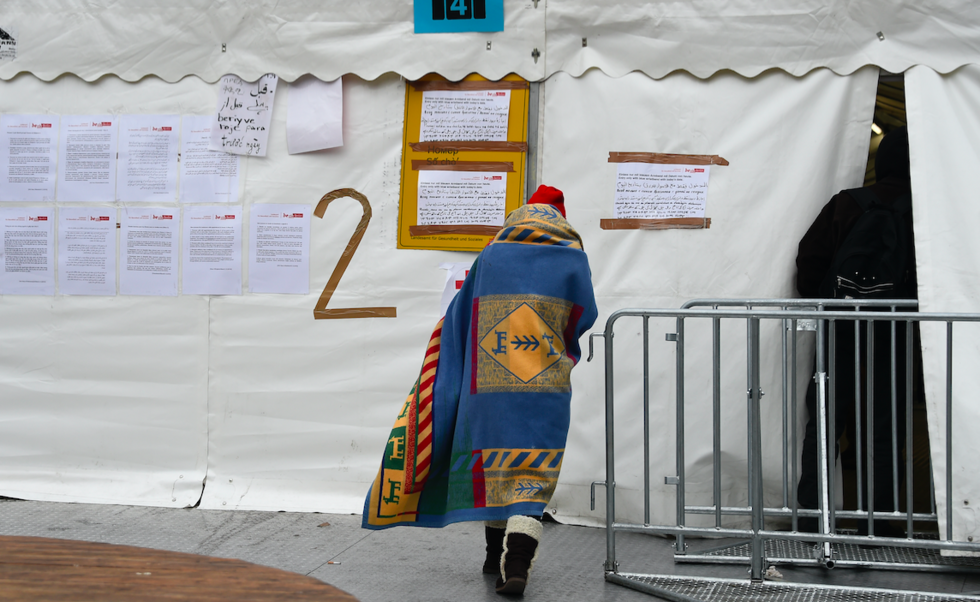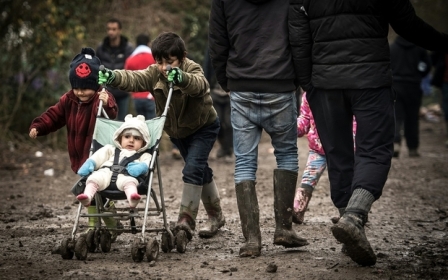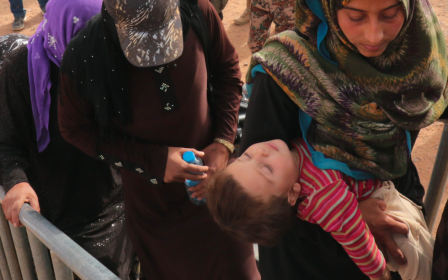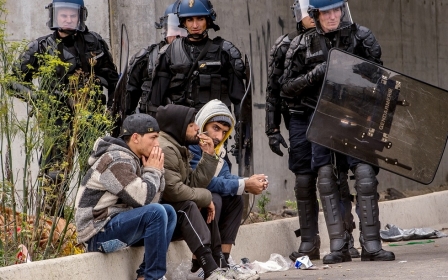Germany plans repatriation centres for Algerians, Moroccans

Germany is planning measures to expedite the deportation of rejected asylum seekers from Algeria and Morocco including placing them in special expulsion centres, officials said on Sunday.
The proposals came after a sharp rise in new arrivals from the two countries in recent months, as well as public outrage over a rash of attacks on women on New Year's Eve in the western city of Cologne that were blamed on North African and Arab migrants.
Welt am Sonntag newspaper reported that Chancellor Angela Merkel and Bavarian state leader Horst Seehofer had agreed that Algerian and Moroccan asylum seekers should no longer be put in shelters throughout the country.
Instead, they would be housed in existing expulsion facilities in Bavaria until their claims have been heard, similar to the practice currently used for applicants from Balkan countries who are unlikely to be granted asylum.
Vice Chancellor Sigmar Gabriel noted on Sunday that this option could be applied more widely.
Germany has said it wants to free up resources to help people fleeing war-ravaged countries such as Syria, with Syrians making up about 40 percent of the nearly 1.1 million people who arrived last year.
Albania, Bosnia, Kosovo, Macedonia, Montenegro and Serbia have all been declared safe countries of origin by Germany, meaning their citizens have very little chance of gaining refugee status.
Berlin now plans to add Algeria and Morocco to the list, despite rights groups complaining about the arbitrary arrest and prosecution in Algeria of political and trade union activists and Morocco coming under fire for its harsh policing measures in the Western Sahara.
The number of Algerian asylum seekers arriving in Germany rose to 2,296 in December from 847 in June, while those from Morocco jumped to 2,896 from 368, the interior ministry said.
"A good case can be made for placing migrants from the North African region without a chance of staying [in Germany] in repatriation centres," an official from Seehofer's Christian Social Union, Thomas Kreuzer, told Welt am Sonntag.
Seehofer is the most vocal critic of Merkel's liberal refugee policy within her conservative bloc and has pressed for her to set an upper limit on the number of asylum seekers entering Germany.
Merkel has rebuffed these calls, dismissing them as impractical and unconstitutional.
Pressure on Merkel has grown since the Cologne melee, which gave rise to more than 670 criminal complaints including over 330 relating to sexual violence.
About 50 kilometres from Cologne in Duesseldorf, police said they had detained 40 men from North Africa, nearly all on suspicion of being in Germany illegally, following raids on Saturday in the so-called Maghreb Quarter, notorious for pickpocket and drug gangs.
The head of the Duesseldorf operation, Frank Kubicki, said it had been planned before the events in Cologne.
"At the same time, we expect findings that could aid the [Cologne] investigation," he said.
New MEE newsletter: Jerusalem Dispatch
Sign up to get the latest insights and analysis on Israel-Palestine, alongside Turkey Unpacked and other MEE newsletters
Middle East Eye delivers independent and unrivalled coverage and analysis of the Middle East, North Africa and beyond. To learn more about republishing this content and the associated fees, please fill out this form. More about MEE can be found here.




